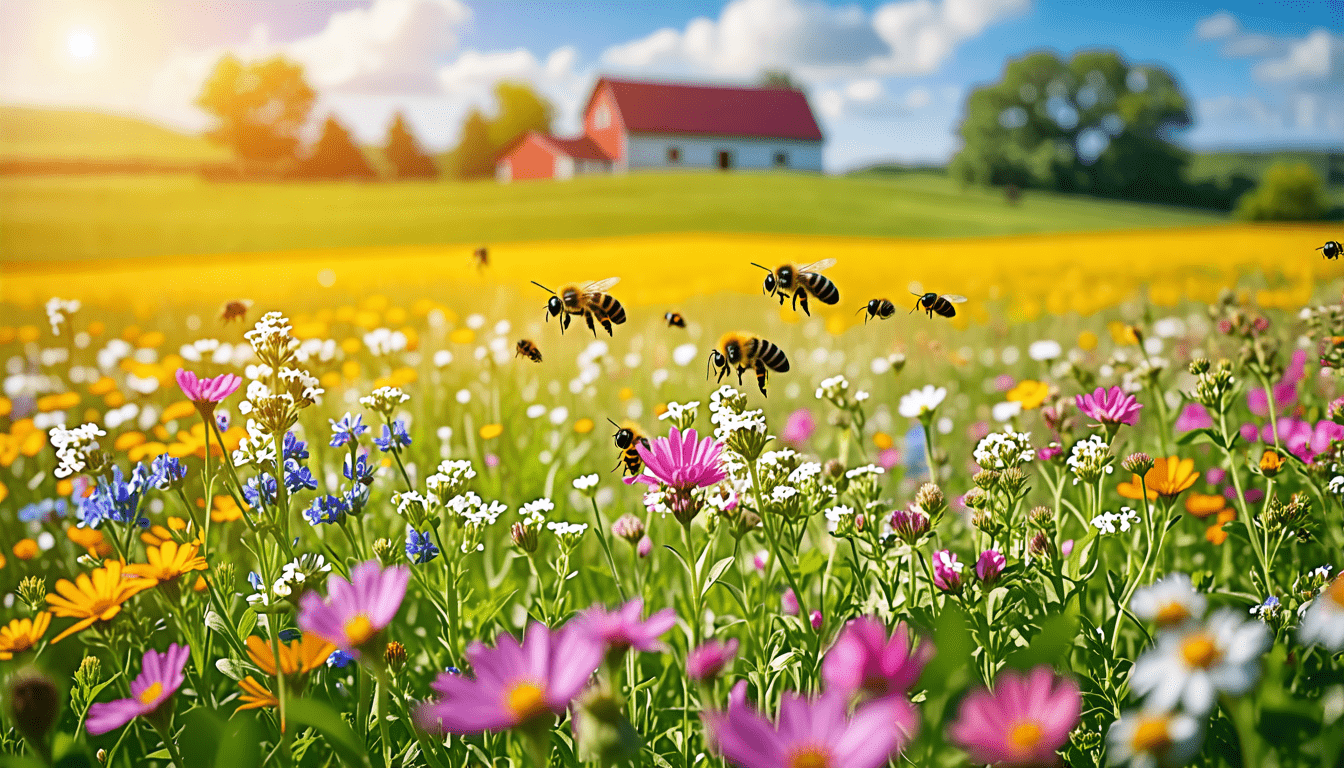Eco-friendly agriculture boosts bee well-being

Eco-Friendly Agriculture: A Boost for Bee Well-Being
In recent years, the importance of bees in our ecosystem has become increasingly evident. These tiny creatures play a crucial role in pollination, ensuring the survival of countless plant species and the production of our food. However, bee populations have been facing significant challenges, including habitat loss, pesticide exposure, and climate change. Fortunately, eco-friendly agriculture practices are emerging as a beacon of hope for bee well-being.
The Benefits of Eco-Friendly Agriculture for Bees
Eco-friendly agriculture, also known as sustainable farming, focuses on minimizing the environmental impact of agricultural practices while promoting biodiversity. By adopting these methods, farmers can create a haven for bees and other pollinators. Here are some key benefits of eco-friendly agriculture for bee well-being:
- Reduced pesticide use: Eco-friendly farmers prioritize natural pest control methods, such as companion planting and biological control agents, over harmful chemical pesticides. By minimizing pesticide exposure, bees can thrive in a safer environment.
- Diverse plant species: Sustainable farms often cultivate a wide variety of crops and native plants, providing bees with a diverse array of nectar and pollen sources. This diversity not only supports bee nutrition but also helps maintain ecosystem balance.
- Preservation of natural habitats: Eco-friendly agriculture practices, such as maintaining hedgerows, wildflower strips, and buffer zones, create essential habitats for bees. These areas provide nesting sites, shelter, and forage, ensuring the long-term survival of bee populations.
Successful Examples of Eco-Friendly Agriculture
Around the world, farmers and organizations are implementing eco-friendly agriculture practices to support bee well-being. For instance, in the United States, the Xerces Society has been working with farmers to establish pollinator-friendly habitats on agricultural lands. By planting native wildflowers and reducing pesticide use, these farms have seen a significant increase in bee populations and improved crop yields.
Similarly, in Europe, the European Union has introduced the Bee-Friendly Farming initiative, which encourages farmers to adopt sustainable practices that benefit pollinators. Participating farms implement measures such as creating flower-rich margins, reducing pesticide use, and providing nesting sites for bees. These efforts have not only boosted bee populations but have also contributed to the overall health of the agricultural ecosystem.
Something to Consider
While eco-friendly agriculture shows great promise for bee well-being, it is important to recognize that widespread adoption is crucial for long-term success. As consumers, we can support bee-friendly practices by:
- Choosing products from farms that prioritize sustainable and eco-friendly methods.
- Supporting local farmers markets and organic produce.
- Educating ourselves and others about the importance of bees and the benefits of eco-friendly agriculture.
By working together, farmers, organizations, and consumers can create a brighter future for bees and ensure the sustainability of our food systems. Eco-friendly agriculture is not just a trend; it is a necessary step towards preserving our planet's biodiversity and securing a healthy future for generations to come.
Looking for updates? Sign up to our newsletter for weekly snippets.
#UnitedStates #Europe





